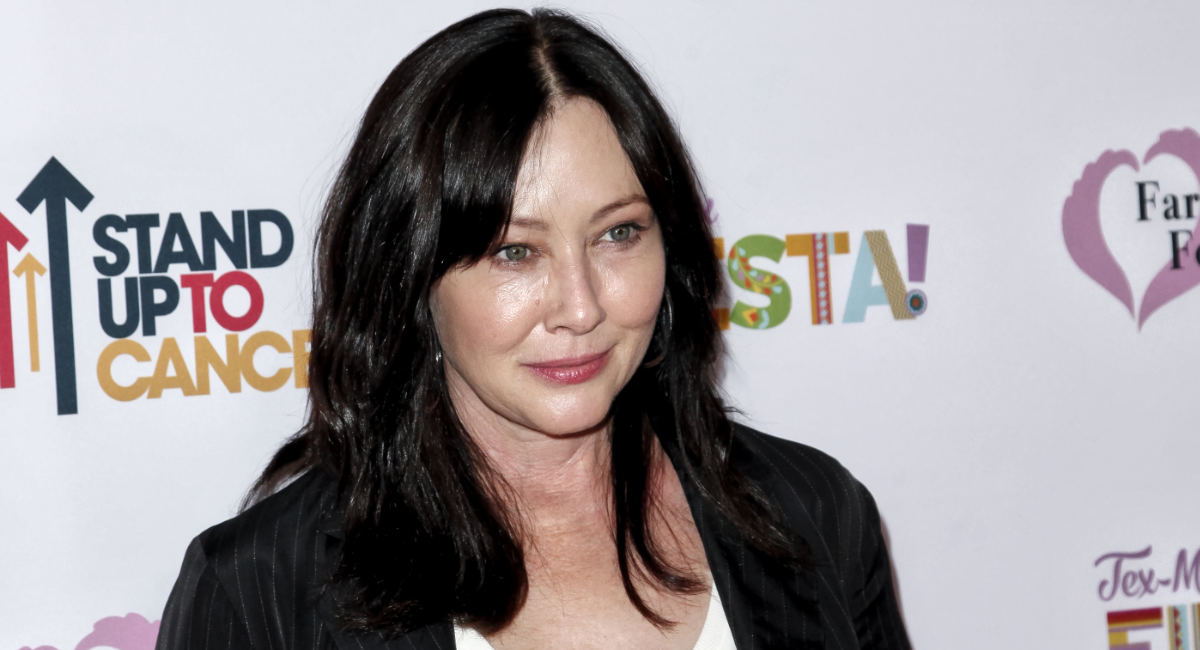Update 7/15/2024: Shannen Doherty, the actress best known for her roles in “Beverly Hills, 90210” and “Charmed” died on July 13 at the age of 53 after a years-long battle with cancer.
“It is with a heavy heart that I confirm the passing of actress Shannen Doherty. On Saturday, July 13, she lost her battle with cancer after many years of fighting the disease,” Doherty’s publicist Leslie Sloane confirmed in an exclusive statement to PEOPLE.
On an episode of her podcast, “Let’s Be Clear With Shannen Doherty,” Doherty spoke with her oncologist, Dr. Lawrence Piro, about her diagnosis and her decision to pursue in vitro fertilization (IVF) during her 11-year marriage to her third husband, Kurt Iswarienko. She said she “believed that the reason why I got cancer was because I did IVF.”
1/3/2024: Actress Shannen Doherty, best known for shows like “Beverly Hills 90210” and “Charmed,” has been vocal about her battle with breast cancer. But now, in a new episode of her podcast, she shared about her past belief that undergoing IVF contributed to the disease.
On the January 1st episode of “Let’s Be Clear With Shannen Doherty,” Doherty discussed her cancer treatment with her oncologist, Dr. Lawrence Piro, as well as her decision to pursue in vitro fertilization (IVF) during her 11-year marriage to her third husband, Kurt Iswarienko. The two separated in April of 2023.
In 2015, Doherty was diagnosed with breast cancer, and underwent chemotherapy until 2017, when she said she was in remission. But just months later, she announced that the cancer had not only returned, but was now Stage IV, and had spread to her brain and bones. She underwent brain surgery and radiation, and — shortly after her brain surgery — learned her husband had been engaging in a long-term affair. Doherty filed for divorce. “It was, like, maybe two or three days apart,” she previously told ET. “So, yeah, it was pretty brutal.”
This week, she spoke to Dr. Piro about her desire to be a mom while balancing cancer treatment. Originally, she refused to take Tamoxifen, which had been suggested by Piro, because she didn’t think it was necessary. “I also think that I was fairly certain it wasn’t going to come back, because I believed that the reason why I got cancer was because I did IVF,” she said. “I met my husband at the time later in years and a multitude of things happened, and so when it was time to have that decision, we needed IVF and I did a bunch of rounds of it.”
She further added that other women she knew had similar experiences.
“Through a lot of other women that I knew that did IVF that ended up getting breast cancer as well, sort of the numbers all started stacking up in my head,” she explained. “If you sort of have a cell that’s a little wonky and that’s sitting on the edge of maybe turning, spreading cancer — blah, blah, blah — that all the hormones that you’re pumping into your body from IVF are only going to up that chance. That was, at least, my thinking.”
One study from the National Institutes of Health did find a slight increase in risk for “hormone-sensitive cancers” for women undergoing IVF, though the evidence is not yet conclusive. Aside from cancer, however, there are numerous known risks associated with IVF, including infection, damage to maternal organs, ovarian hyperstimulation syndrome, ectopic pregnancy, and more.
Piro then pointed out that Doherty’s decision to not take Tamoxifen was also because she still held out hope for a baby. “Menstruation can return,” he said. “You were still hopeful that it might return for you because you still want to have a baby.”
Doherty agreed. “It did definitely play a huge role. Not only did I want a child for myself, but I wanted it for my husband. I wanted it for our marriage,” she said. “I wanted, you know, I wanted him to have that part of himself fulfilled as well. So it seemed like a calculated risk that wasn’t too bad of one to take.”
And while she is still hopeful that she may one day be a mother, she also is weighing the balance of her prognosis with its potential effect on a child. “I have looked at adopting, and all sorts of different options. I think I struggle a lot with with my cancer diagnosis, and how fair it is,” she said. “I’m in treatment, and I’m gonna see if that treatment works. See what’s coming down the pipeline, what clinical trials, and if I feel like I can give a long enough time to a child, then I’ll definitely do it.”







